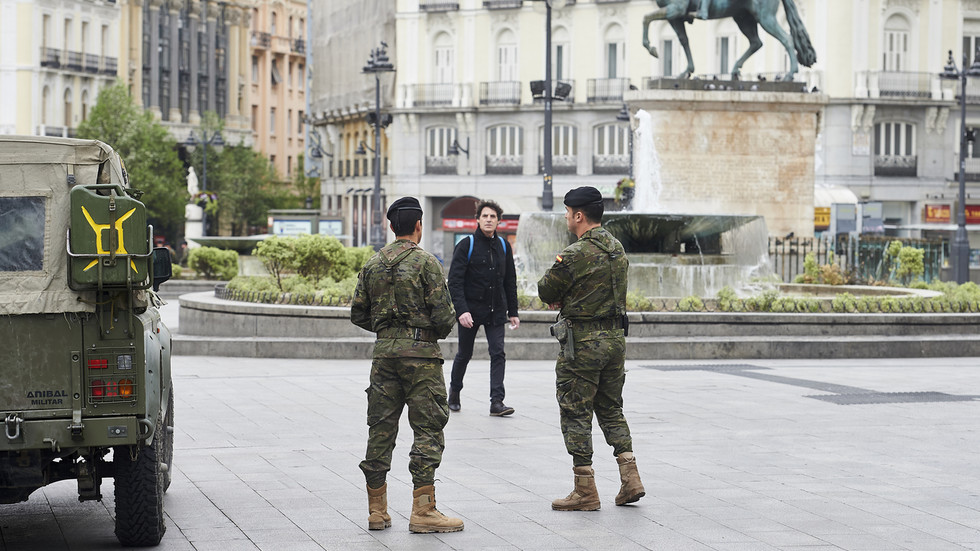Lockdowns, curfews. Troops on the streets. Governments handing out free cash. This utter madness was entirely avoidable
from RT:

What happens when governments confuse worst-case scenarios with reality? They transform a health crisis into a social crisis and an economic tsunami, with consequences more severe than the virus could produce in the first place.
As I write, hundreds of thousands of people across Europe and the world have already lost their jobs, in the leisure and entertainment sectors in particular. As sector after sector is impacted by global lockdowns, mass unemployment is not a possibility, it is definite. And the social costs are going to be severe. How severe no one really knows. But past experiences show that when people lose jobs, they can also lose homes, their marriages, their health – and our social fabric is pulled apart.
However, we should be careful not to obsess with trying to second-guess what the huge costs to society will be of the panic. Otherwise there is a danger of one form of apocalyptic scaremongering being replaced by another.
There are two related problems. The first is that the global economy was already in the emergency ward before the impact of Covid-19. Whether the economic actions being taken across the world – from unprecedented interest-rate cuts through to eye-watering trillions of dollar state spending – will stem the flow or not remains to be seen. Perversely, it could help to shake out many non- or under-performing sections of the economy, which could be a good thing in the long-term.
The second problem, and the more important one in the short-term, is that economic rationale is not what is driving policy; apocalyptic doom-mongering is. Provoked by the media, governments have been forced into a macabre competition of being seen to be acting. The ‘do something… anything’ approach has resulted in new performative displays aimed at placating the doom mongers, rather than address the health problem rationally. Many governments have been driven less by a reasoned, evidence-based strategy of limiting both the spread of the disease and the disorganisation of economic life, than by an urge to be seen to be taking action.
This is the real problem. In Europe, we have seen an historically unprecedented peace time clampdown on everyday life and social engagement, particularly in Italy, Spain and France. It seems that the responsibility of behaving as true moral leaders who might galvanise the public in a collective mission against illness and a concerted effort to protect economic life, has been jettisoned in favour of being seen to act.
Normal life has been put into quarantine. Carrying signed and dated forms, declaring a reason for being outdoors, is now obligatory across much of the continent, with the threat of heavy fines being imposed if not completed. Even in the UK, where the government has attempted to act rationally and appeal to reason, rather than apply top-down enforcement, there is a move in the draft Coronavirus Bill to give the police and immigration officers powers to detain anyone suspected of carrying the virus and force them into quarantine. People are facing a fine of up to £10,000 or three months’ jail if they refuse to be tested or to remain in quarantine. This week’s first arrest of a man in Britain for failing to self-isolate is likely not to be the last.
Loading...


